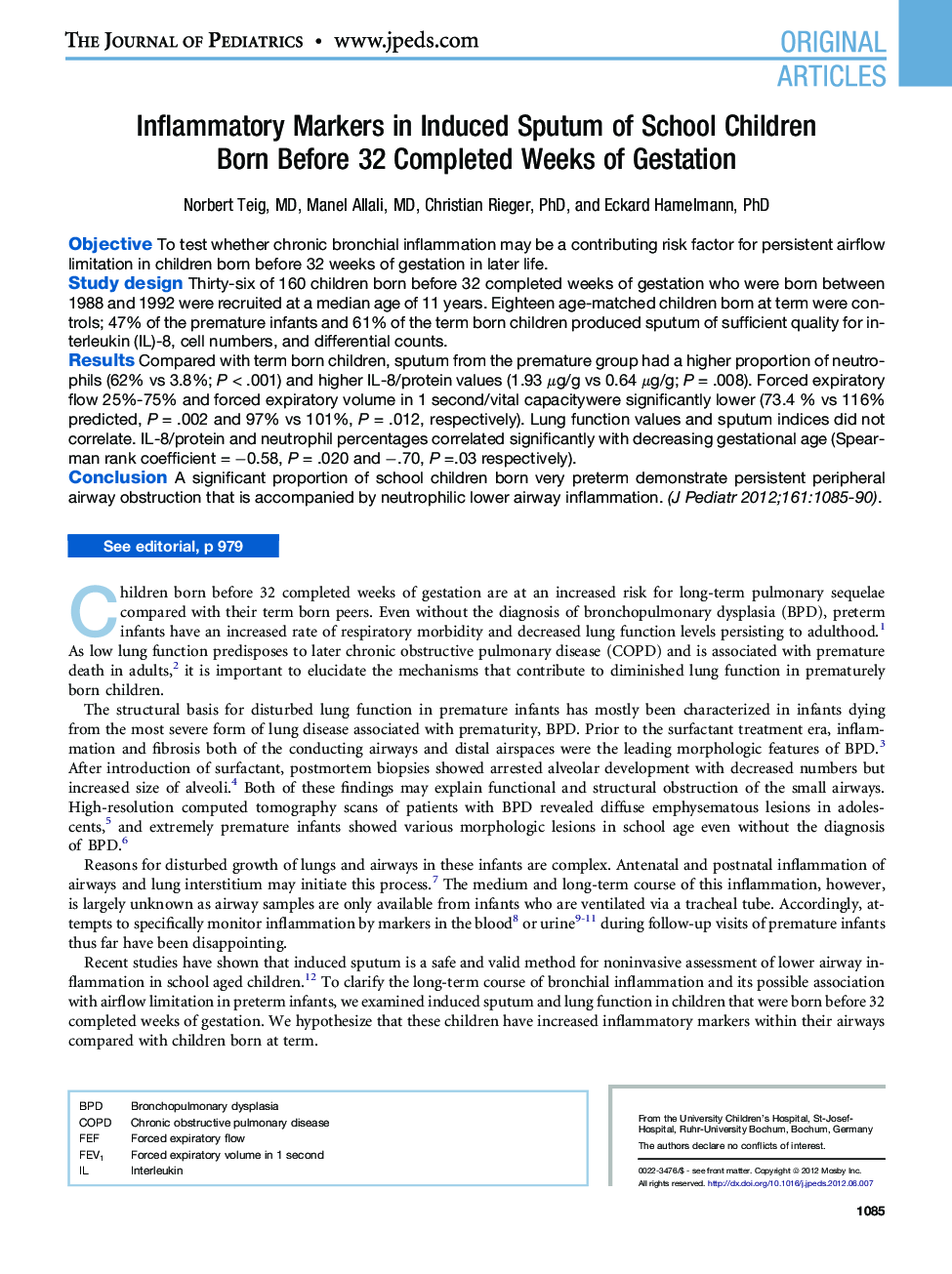| Article ID | Journal | Published Year | Pages | File Type |
|---|---|---|---|---|
| 4165502 | The Journal of Pediatrics | 2012 | 6 Pages |
ObjectiveTo test whether chronic bronchial inflammation may be a contributing risk factor for persistent airflow limitation in children born before 32 weeks of gestation in later life.Study designThirty-six of 160 children born before 32 completed weeks of gestation who were born between 1988 and 1992 were recruited at a median age of 11 years. Eighteen age-matched children born at term were controls; 47% of the premature infants and 61% of the term born children produced sputum of sufficient quality for interleukin (IL)-8, cell numbers, and differential counts.ResultsCompared with term born children, sputum from the premature group had a higher proportion of neutrophils (62% vs 3.8%; P < .001) and higher IL-8/protein values (1.93 μg/g vs 0.64 μg/g; P = .008). Forced expiratory flow 25%-75% and forced expiratory volume in 1 second/vital capacitywere significantly lower (73.4 % vs 116% predicted, P = .002 and 97% vs 101%, P = .012, respectively). Lung function values and sputum indices did not correlate. IL-8/protein and neutrophil percentages correlated significantly with decreasing gestational age (Spearman rank coefficient = −0.58, P = .020 and −.70, P =.03 respectively).ConclusionA significant proportion of school children born very preterm demonstrate persistent peripheral airway obstruction that is accompanied by neutrophilic lower airway inflammation.
